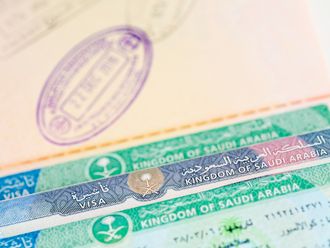
Dubai: As the Middle East online travel market strengthens, online travel agencies need to develop strategies and boost their services to meet this growth, according to experts at a conference on Wednesday hosted by Amadeus.
With the higher internet penetration, more consumers in the region are buying online. According to Stephen Leeds of Visa, almost 30 per cent of transactions have been done online in the GCC in the last three years. The majority of consumer spending is targeted at government utilities, and then at airlines and travel agencies. With the rise in online purchasing, more niche businesses, travel agencies and government organisations are coming online.
In the UAE, “almost 23 per cent of the total bookings across general trading [including airlines and lodging] were online in 2012. This is expected to reach almost 26 per cent in 2014,” according to Mona Faraj, managing partner at Insights management consultancy.
Traditional travel agencies, meanwhile, are still here and will still remain in the coming years, said Mona, due to their “strong and loyal client base”.
An attractive aspect of online businesses is the incentives they offer to consumers. Many sites have low cost offers, compared to their higher offline offerings. Setting up an online business reduces operations costs, which is why consumers can make online purchases at reduced costs, said Ahmad Yousuf of Amadeus. Changing trends
As more consumers come online, travel agencies need to adapt their business models to the changing consumer trends. More people are using smartphones to browse and book flights and hotel rooms. So business should tap into that. Cleatrip.com, for instance, has optimised its site for iPads, since 26 per cent of consumers visit their site on their iPads, according to Hijazi Natsheh, general manager of marketing at the agency.
Additionally, creating conversations online is key to understand consumer trends- social media in an important platform for that, according to Natsheh.
Commenting on a tweet about Cleartrip’s new mobile app, Natsheh said: “From that single tweet, we had more than 300 downloads.”
Localisation of languages is also a major factor in boosting the online travel market. Currently, only 12 per cent of online businesses in the UAE have websites in Arabic, compared to 85 per cent that have them in English, according to TRA’s Basema Al Jaberi.
Airlines
Meanwhile, for airlines, the booking trends in the region favour both offline and online platforms.
For traditional airlines (national carriers and global operators), the majority of sales come from offline sources (85 per cent) while 15 per cent are from online sources. Their direct website makes up 10 per cent, and online travel agencies account for five per cent, according to a report by PhoCusWright, co-sponsored by Amadeus, for 2010 to 2014.
This creates a stark contrast with low-cost carriers that have a higher online penetration. Sales from online bookings make up 60 per cent — 42 per cent are from direct websites and 18 per cent from online travel agencies — while offline sales account for 40 per cent, the report showed.
The UAE is the largest travel market (for both online and offline travel) in the Middle East, making up 60 per cent, according to Mona.
Sarah Algethami is a trainee at Gulf News












